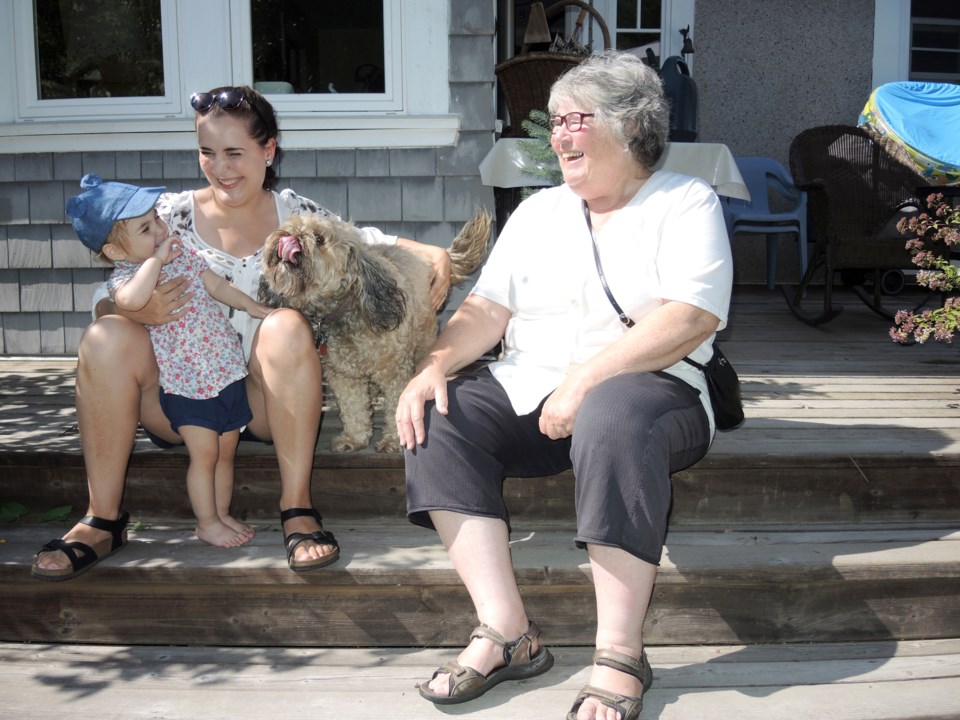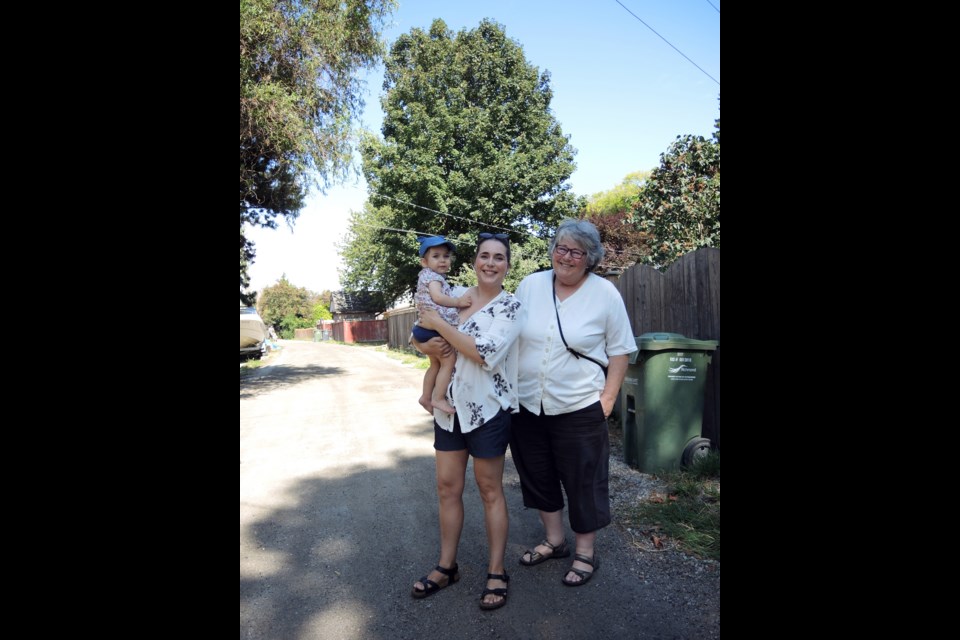This Burkeville granny needs a granny flat. But the City of Richmond has been too bogged down in other things to sort out what appears to be a deteriorating housing situation in one of Richmond’s most unique and homespun neighbourhoods.
Meg Holdsworth is now retired from working at UBC Hospital and resides in her 1,000-sq.-ft. home on Sea Island, practically waiting by the phone for the city’s planning department to give her the good news that it will table a report to city council on laneway housing in the neighbourhood.
“I want to live in a lane house, in a granny suite, and the kids would have my house,” Holdsworth told the Richmond News.
“It’s such a great place to live. Kids still come out to play and everyone is so nice,” said Holdsworth of her neighbourhood.
Six years ago, the city consulted Burkeville residents on laneway housing. But after a survey showed some support for such houses, the tide shifted when one monster granny flat was built (bigger than the actual home). The jig was up, and a supposed two-year moratorium on laneway housing was declared. In late 2015, Holdsworth became a granny to granddaughter Niamh. Then, she called the city to see why the moratorium hadn’t been lifted and a revised policy put in place.
“I think their credibility has been lost because I keep getting told they’re going to do it, and then they do nothing, and then I email, and they say they will do it... and I don’t hear back, and so I email again,” explained a frustrated Holdsworth.
Meanwhile, city hall officials say a number of other issues – such as land-use contract termination, house size bylaws, restricting farmland mega-mansions, a revision of the Steveston area plan and a new short-term rental policy – have pushed Burkeville plans to the corner cubicle.
“Everything is important, but we follow priorities set by council,” said Policy Planning Department Manager Terry Crowe. “We’re hoping for more consultation by end of year.”
Planning committee chair Coun. Linda McPhail acknowledged the delay and said she wants to see laneway housing in Burkeville, but only after residents are consulted and agree that past problems, such as house size, lane conditions and parking, have been adequately addressed.
“I think coach houses are an important part of the housing continuum,” she said.
Meanwhile, in the absence of a policy – such as on arterial roads and in Shellmont – the News observed a number of alternative housing solutions, such as massive “accessory” buildings, a backyard trailer with a deck, sheds turned into apparent bedrooms and even one mini-house.

“There’s so many people living in the lanes now that [residents] just assumed there was a policy,” Holdsworth said.
“People think it’s already in place. There’s all sorts of [buildings] being built.”
She said she feels there’s general support in the neighbourhood for a laneway housing policy in Burkeville.
Meanwhile her daughter’s family of three finds itself in a stalemate renting an old one-bedroom apartment in City Centre for nearly $1,200 a month.
“Living in Burkeville has always been kind of been the dream. We were thinking of moving here even before we came back,” said Kathryn O’Leary, 35, a teacher whose husband is also a teacher.
When Coun. Carol Day ran for city council in 2011 she agreed with those who opposed granny flats on three grounds: densification would bring parking problems to the neighbourhood; firefighters and ambulances would have difficulty navigating lanes; and increased density would “destroy” the community vibe.
Now, she has taken a softer, if not pragmatic, philosophy on the matter. She said she now agrees laneway housing should be allowed if parking is managed well and overall house sizes are controlled.
Crowe said recently revised housing bylaws should assist in a new Burkeville policy.
“I’ve probably softened my position just because of the desperate [housing] situation,” said Day.
She said over the past six years housing has become a serious issue due to foreign investment and real estate speculation in Richmond houses.
“The provincial and federal governments have not controlled foreign investment, which has fundamentally changed real estate in the Lower Mainland. So we have to create better options as we move forward,” said Day.
She said she opposes large homes being built in neighbourhoods and supports rezoning two lots into three, as long as green space is preserved. Likewise she supports secondary suites and laneway houses as long as they are not combined.
“I’d like to see much smaller affordable houses being built in existing neighbourhoods,” said Day.
The print version of this article omitted the point that Coun. Linda McPhail first wants any proposed laneway housing policy sent to public consultation before any ruling is made.



